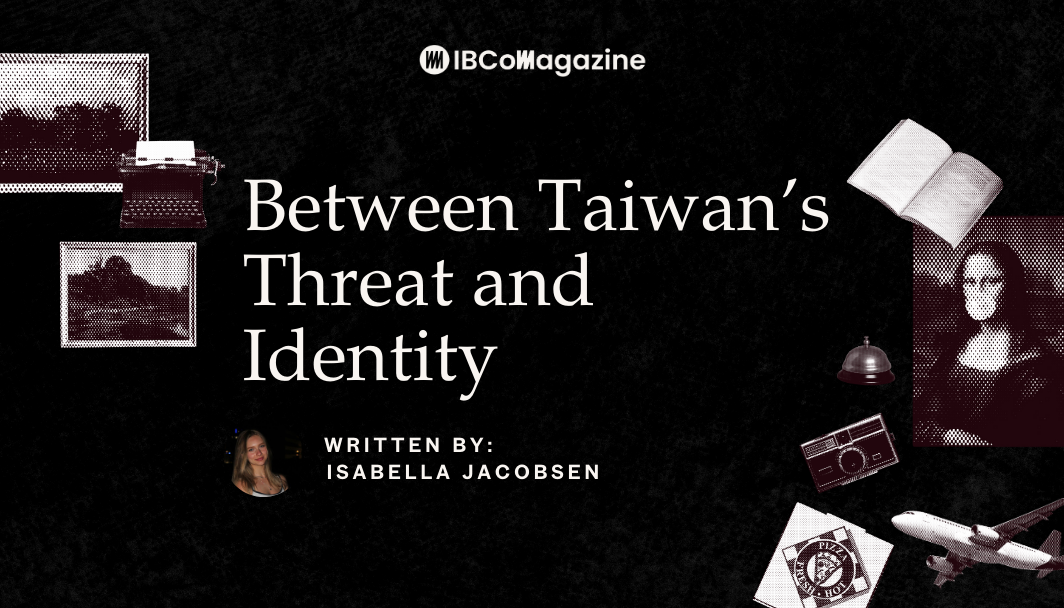For decades, Taiwan has lived under the shadow of a threat that resides closely across the Taiwan Strait. China claims the island as its own, professing its interest to obtain it under Beijing’s control, even by force if necessary.
Fighter jets, navy vessels, and official ships are continuously being spotted along the Taiwan Strait, raising alarm on the possibility of an attack by Beijing[1].
The world watches with caution, unsure what the next move might be and what can be done to prevent it.
And yet, life in Taiwan goes on.
Despite being faced with continued pressure, the island’s locals continue to move forward. Not with fear, but with quiet determination. Rather than being defined by its fragile position on the world stage, Taiwan has managed to place emphasis on its own identity – one rooted in democracy, freedom, and pride.
Behind Beijing’s threats
Taiwan’s disputed status stems from the Chinese Civil War. After the Nationalist government lost to the People’s Republic of China (PRC) in 1949, it fled the mainland and moved to the island. Though the PRC has never controlled Taiwan, it claims the island is an inalienable part of China that must “reunified” with the mainland.[2]
Chinese leader Xi Jinping has framed bringing Taiwan back under mainland control as an essential task for the country’s expansion. He has linked this goal to 2049, the 100th anniversary of the Chinese Communist Party. To prepare for this, Xi Jinping has instructed the military to be capable of invading Taiwan by 2027.[3]
As a result of this ambition, the People’s Liberation Army has been increasing its air and naval activities while also preparing for possible cyber tactics. However, analysts caution that an invasion would be costly and risky, though the threat persists.[4]
Beijing’s interest in Taiwan is both political and strategic. Taiwan sits just 200 kilometres from China’s coast, making it a crucial Western Pacific position. Control of the island would expand China’s military reach and breach the US-allied “first island chain” encircling the mainland.[5]
Taiwan also carries symbolic weight. It represents national unity and the idea of reunification under Beijing’s “One China” framework.[6]
Diplomatically, Taiwan is often left out of key discussions. For instance, during talks between U.S. President Trump and Xi Jinping, Taiwan was not mentioned at all, illustrating how decisions about its future are sometimes made without its input, but rather completely up to China.[7]
Thus, both are rival governments making different claims over authority. Neither recognises the other’s legitimacy.
Why do many Taiwanese not see this as a major issue?
Media attention to the rising interest of China taking over Taiwan has onlookers wondering why Taiwanese locals do not seem as worried about the situation at hand, in comparison to those outside Taiwan.
An anonymous professor at the National Chengchi University in Taipei, contends that the China–Taiwan tension is less concerning than often perceived, as it has “become politicised and is not what it is portrayed to be in Western media.”
“I do think the situation is pretty serious for sure. But what’s interesting is why most Taiwanese people aren’t sensitive to the severity of the tension.” The professor highlights different reasons as to why Taiwanese may see the tension in a different light.
For example, the Taiwanese government intentionally avoids amplifying fear by repeatedly providing phrases such as “China is threatening us”, rather than actively “invading”. The choice in wording showcases how it is attempted to soften the circumstances that are occurring. But most surprisingly, the Professor claimed that “[the government] blocks some information, so it’s not in the media at all,” ultimately leaving Taiwanese locals unaware of the full, honest picture of the tensions.
Reflecting on identity, the Professor stated: “Many Taiwanese believe we have the free will to define who we are, but in reality, we don’t.”
This is seen in the lack of public awareness in Taiwan about China’s influence, noting that Chinese versions of digital tools, such as their own Google Maps, are already in use in Taiwan and can track precise local details. So much so that China can “see the waiting time of one specific traffic light”, according to the professor. Yet, the average Taiwanese is largely unaware of this. This insight displays the gap between control and perception.
A desire for independence
Taiwan has its own government, military, and passport. An increasing share of its population identifies primarily as Taiwanese rather than Chinese. This framing of China as an outgroup and Taiwan as an ingroup strengthens the perceived distinction between ‘us’ and ‘them’.
Since the mid-1990s, the share of residents identifying solely as Taiwanese has risen steadily, surpassing 50% in the early 2000s and approaching 60% by 2019[8]. Today, over 90% regard themselves as at least partially Taiwanese. This trend emphasises a clear us-versus-them divide, with China positioned firmly as the outgroup.
A local student from National Chengchi University, who wished to remain anonymous, commented: “Taiwan promotes its cultural and social achievements to appear distinct from China, but politically, full independence remains complicated.”
Across society, culture, and everyday life, Taiwan actively defines its separateness, reinforcing an independent identity that stands apart from China. However, in regard to politics, the question stands of whether being taken over by China is inevitable.
A hidden gem in plain sight
Because of the tensions, Taiwan remains one of Asia’s most underrated destinations. When people plan their trips to the region, they often gravitate towards the famous countries such as Japan or South Korea. Although Taiwan has memorable nature, food, and culture, it continues to remain as an afterthought, or rather, a Chinese island.
It has a vibrant culture. Simply walking through Taipei’s night markets will open your eyes to where Taiwan’s pride resides and how it differentiates from China. From the famous xiao long bao and scallion pancakes to the happiness radiating from locals, it is clear to see that the exterior threats leave no mark or fear on them.
And so, in a period of uncertainty about what is to come between Taiwan and China, local citizens continue to find comfort in what makes them who they are.
A lesson to all
In a region defined by power struggles, Taiwan demonstrates that independence is not only a political status but a state of mind.
Overlooked by many, threatened by one, and admired by those who take the time to look closer, Taiwan continues to prove to us that strength can exist in silence and that pride, when deeply rooted, can prosper without needing permission to do so.
[1] Taiwan’s President Labels China a ‘foreign Hostile Force’ and Ramps up Security Measures Citing ‘Infiltration.’
[2] Taiwan in the Shadow of War – Time
[3] Taiwan in the Shadow of War – Time
[4] Is China preparing to invade Taiwan? – The Week
[5] Why does China want Taiwan when it’s already so big and rich? The answer is about more than land and money – ABC News
[6] The One China Principle vs. The One China Policy – Taiwan Study for Security Studies
[7] Taiwan issue not mentioned in meeting with Xi: Trump – Focus Taiwan
[8] The Chinese Threat and Changes of Identity in Taiwan


